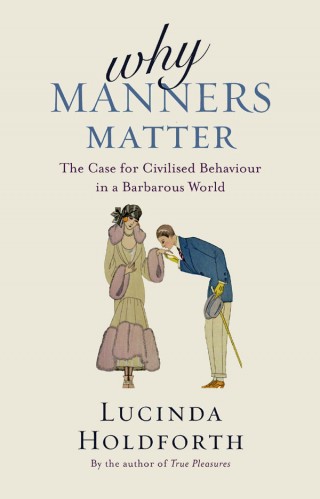Manners are out of fashion these days, but they’re worth another look in these difficult times. [25 January 2011 | Peter Boyer]
Remember phone books, those battered stacks of pages full of names and numbers? They still get delivered, but I suspect in steadily dwindling numbers. In these days of mobiles and electronic memories they seem headed for oblivion.
I doubt that phone books — bulky, unwieldy and hard to read — will be mourned much after their demise. But we should remember their one big redeeming feature, as public records of the members of a community — a way in which people “went public”.
You mightn’t agree. In these times when privacy is considered an absolute right, having one’s name in a public list seems, well, common — a bit like that quaint old habit of answering a ringing telephone without knowing who’s on the other end. The smart people just don’t do it any more.
We could trace the modern privacy trend way back to when affluent Western youth adopted the mantra of “doing your own thing”, an idea that for better or worse has transformed modern life. As it has fostered personal liberty and free expression, it’s also encouraged people to reject social norms and limitations, and to disengage.
Margaret Thatcher may have exaggerated when she said society didn’t exist, but the technologies of connectivity and personal mobility have transformed the way we interrelate. More than ever before, society today is really just clusters of individuals and groups each doing their own thing.
Let’s face it: neighbours are a problem. They arrive without our say-so, often have dubious habits, and can be loud and disagreeable, while our very own selected Facebook friends, saying only nice things, are a virtual neighbourhood we can take with us when we move. So who needs a real one?
Actually, we all do. Virtual reality is not reality. When those thousands of volunteers descended on muddy Brisbane streets as the floodwaters receded, they were answering a real, instinctive need to be neighbourly, with benefits for the giver as well as the receiver. The same thing happened in flood-affected places in Victoria and Tasmania.
The emergencies arising out of our shifting climate are confronting us with a call to return to basics. The effort of those who pitched in to help was a declaration that backing off, retreating into our private worlds, is the last thing we should be doing. We need to hear that message, loud and strong.
The need to revive our public life — to “come out”, stand up and be heard — was the subject of a round-table discussion on sustainable living I attended in Hobart a couple of months ago. Hobart landscaper Torquil Canning recommended a book by a Sydney writer, Lucinda Holdforth, called simply Why Manners Matter.
The title brings to mind those anal-retentive etiquette manuals from times past, but this little gem of a book, subtitled “The case for civilised behaviour in a barbarous world”, is a far cry from such stuffy tomes. Its author even admits to sometimes using choice language.
Exquisitely written in clear, unpretentious, often very funny prose, Why Manners Matter is truly a manual for our times — for people anywhere, in any situation, but especially for “developed” peoples retreating into their own personal space, taking refuge from the unpleasantness outside.
Holdforth describes the results of this retreat. Families fit out their homes with formerly-communal facilities such as swimming pools, “home cinemas” and computer games (taking the place of street play). To top it off, each person gets his or her own self-contained quarters, complete with bathroom.
Add to that air conditioning, personal transport big enough to insulate us from commuter traffic, and for the very rich, private yachts, planes and boutique hotels in a remote natural setting — all in the name of “doing your own thing”, and all making our big carbon footprint even bigger.
“In our heart of hearts,” says Holdforth, “we must know it won’t work. There is no escape from the humanity bath. We are all in it, up to our necks.”
Holdforth argues passionately and convincingly that manners, ahead of moral codes or the rule of law, are what keep us civilised, by mitigating subtle yet serious risks to society. In their absence we have to suffer yet more laws, or risk having moral systems imposed on us by others.
Once a mark of social and political authority, manners are nowadays seen as outdated and quaint. We like it when others show manners, but using them ourselves demands unfashionable attributes like self-control, small sacrifices, being patient and aware of others.
But in these times of big and important words like terrorism, globalisation and climate change, says Holdforth, “manners are one of the few things each of us has under our own control, an arena of life in which we can all effect some tangible if tiny benefit.”
Very few people are intentionally bad-mannered, but Holdforth’s plea, and mine, is that we put a real value on maintaining a civil society, and once again give manners, our public life and the well-being of those working and living around us the attention and status they deserve.
In the end, our ability to treat others well might just be what saves our bacon.

